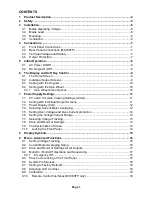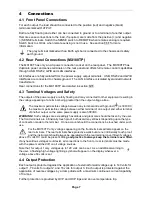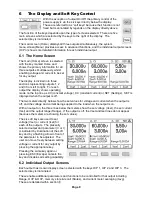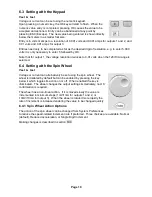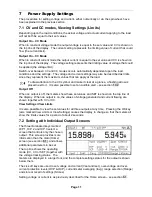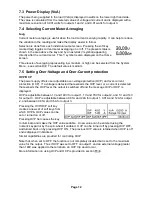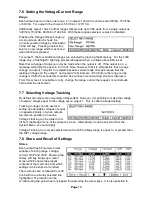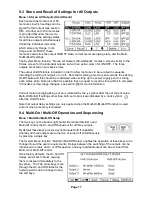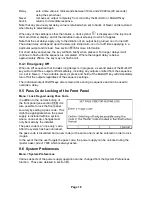
Page 6
3
Installation
3.1 Mains Operating Voltage
This instrument has a universal input range and will operate from a nominal 115V or 230V
mains supply without adjustment. Check that the local supply meets the AC Input requirement
given in the Specification see section 17.
3.2 Mains Lead
Connect the instrument to the AC supply using the mains lead provided. Should a mains plug
be required for a different mains outlet socket, a suitably rated and approved mains lead set
should be used which is fitted with the required wall plug and an IEC60320 C13 connector for
the instrument end. To determine the minimum current rating of the lead-set for the intended
AC supply, refer to the power rating information on the equipment or in the Specification.
WARNING! THIS INSTRUMENT MUST BE EARTHED.
Any interruption of the mains earth conductor inside or outside the instrument will make the
instrument dangerous. Intentional interruption is prohibited.
3.3 Mounting
This instrument is suitable both for bench use and rack mounting. It is delivered with feet for
bench mounting. The front feet include a tilt mechanism for optimal panel angle.
A rack kit for mounting in a 19” rack is available from the manufacturers, or their agents and
distributors overseas.
3.4 Ventilation
The power supply is cooled by an intelligent multi-speed fan which vents at the rear. Cooling
air is drawn in through slots in the front panel directly above the terminals, and by slots in the
base of the unit close to the front.
In a rack-mounted situation no additional space is required above or to the sides of the unit.
Some air space below the unit will ensure the best possible airflow and the lowest fan speeds
for a given power, but is not required.
Ensure that the ventilation slots and rear fan exhaust are not obstructed. In the event of
overheating, a temperature trip will turn all of the outputs off – see section 11.5.


